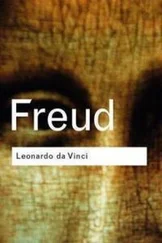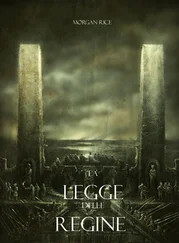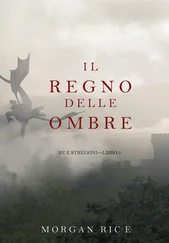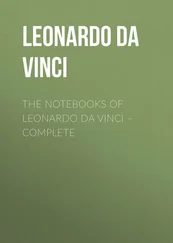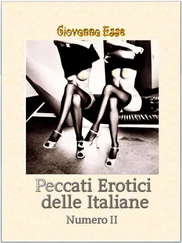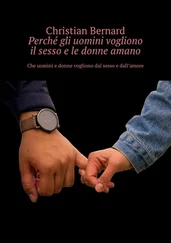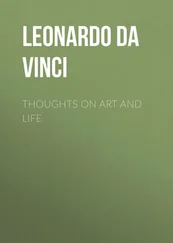Leonardo da Vinci
Taken from the profane life
of the universal genius
da Vinci
Vincenzo Delle Donne
© Vincenzo Delle Donne
Cover:
Leonardo da Vinci, Le proporzioni del corpo umano secondo Vitruvio, Punta metallica, penna, inchiostro marrone, tocchi d'acquerello alla testa e alle mani su carta bianco sporca, 344 x 245 mm, inv. 228
© Archivio fotografico G.A.VE “su concessione del Ministero dei beni e delle attività culturali - Gallerie dell’Accademia di Venezia”
Special thanks to:
Gianluca Delle Donne
Frank Alan Vogl
Vincenzo Delle Donne
Viale Duodo, 54
I-33100 Udine
Although nature commences with reason and ends in experience it is necessary for us to do the opposite, that is to commence with experience and from this to proceed to investigate the reason.
Leonardo da Vinci
How could the illegitimate son of a rural notary possibly become the universal genius of all mankind? More than 500 years after his death, many things are still unclear about Leonardo da Vinci: his appearance, his paintings, the twists and turns of his life. Still firmly connected in touch with antiquity, he brought mankind into the modern era of knowledge.
Leonardo da Vinci was a painter, architect, inventor, homosexual, left-hander, vegetarian and humanist. Today we worship him as a painter who revolutionized Renaissance art, but his blue-blooded clients praised and wooed the researcher, the military strategist and court entertainer in him, who brought about a new era of reason with his discoveries. Leonardo da Vinci left an encyclopedia of the knowledge of his time and ventured into spheres that had previously been considered absolute taboos.
The Italian journalist Vincenzo Delle Donne tells Leonardo's exciting and enlightening career in a an enticing way - how he became the protagonist of the Renaissance in Florence and the father of an entire generation of artists. Michelangelo and Raphael measured themselves against Leonardo, who finally outshone him artistically.
Vincenzo Delle Donne's book, in his search for clues, illuminates the historical and social environment in Florence and Italy that shaped the universal genius. The book is the product of years of research in Italian archives and museums. Seldom has the historical context of the Renaissance been described in such an interesting and clear manner.
Clos Lucé Castle near Amboise, April 23, 1519
Anchiano by Vinci, April 15, 1452: the birth of an illegitimate child
Sodom and Gomorrah in Florence
Florence and the Medici
The Magnificent, the unfortunate "Mars" and the incarnation of Venus
Mathematics and astronomy as the key to the world
Leonardo's new and revolutionary painting
The Pazzi family conspiracy
Arrival at the ducal court of Milan
Leonardo and Ludovico Sforza: the artistic genius at the service of the tyrant
The master and the young pet pupil
February 1498: the Santa Maria delle Grazie convent in Milan
The escape from Milan and the return to Florence
The sensual portrait of Monna Lisa Gherardini or: the catastrophic return to Florence
Leonardo and Michelangelo
Rafael and Leonardo
Wandering between Florence and Milan
Leonardo's artistic influence in Rome
In the end Leonardo gave in to the tempting offers of the new King of France François Ier
Leonardo: the experience as a unique science
Leonardo’s legacy
Chronology of a life
Bibliography
About the Author
Clos Lucé Castle near Amboise, April 23, 1519
Nature, which he adored with religious fervor and considered as the only source of his knowledge, always meant well with him. Even on this warm spring day, when Leonardo was about to take his leave to indulge in earthly life. In some ways nature itself had abounded in his regard. This was the unanimous opinion of his friends and of all those who were close to him, who loved him. Whoever met him, even those without religious belief , were nevertheless inclined to believe that he had been the Son of God on earth. There was no better metaphor to express that Leonardo had been something exceptional, something unique in the course of human history. And indeed, his spirit and soul highlighted a marvellous deity he made speechless and happy: a unique human understanding and kindness was reflected in order to portray divine grace and unprecedented beauty in his art. Without a doubt, the limitless experience of imminent death was also radical and unpredictable for him. The experience? Didn't the old man with a long beard and pendant hair, now lying on his bed, breathing heavily and with his right hand paralyzed for a long time, elevate his life experience as the maxim that man should aspire and act? In any case, he always preached it not only to his students and teachers, but also to his colleagues and friends, making himself many enemies. This list of enemies included clergymen who publicly condemned his thoughts as heretic and subversive. He himself had completely internalized and lived by this maxim since childhood. Experiencing, seeing and understanding what was happening around him gave him the greatest pleasure. He was a man driven by inner motions, a restless man, constantly driven to reach the knowledge of the laws of nature. That he had left many things unfinished did not bother him at all.
He smelled the prickly air of spring through the open window. He heard the birds chirping noisily, and their songs were mixed with the sound of water flowing fast from the nearby stream. Could there be a better time and place to say goodbye to life? Leonardo had difficulty talking. He knew that his last hour was approaching. Even the young pupil, who had remained faithful to him in his last period of life, sensed him, holding his left hand tenderly. That hand with strong and long fingers that, guided by the unbridled thirst for knowledge and regardless of social taboos, had tried to get to the bottom of the structures of matter and the laws of life in general. He had dissected the corpses of men, of pregnant women, he had carved their skulls and uncovered the bones within human legs, to understand the inner nature and the mystery of the mechanics of human movement. The same hand was able to imitate and deeply represent man and the surrounding nature with a few simple brushstrokes. The pupil, whom Leonardo had loved and trained in an idolatrous and altruistic way, turning him into a worthy painter, wondered, like everyone else on his deathbed, how his master was now facing the experience of death. He too was tormented by many questions to which his beloved master was waiting, for which he was looking for an answer. Even while being alive his master was a international celebrity thanks to his talents as an engineer, painter and scientist and who was considered the unparalleled universal genius of this epoch-making threshold, surrendered helplessly to the will of human nature. What was he thinking about now, seeing the fleeting moments of his life? Would Almighty God have mercy on him when he crossed the threshold of the Last Judgment? He would forgive him for the nightly sacrilege of dissecting "30 people of all ages" to see how the man was made inside. How are the muscles made, how do the mechanisms of the bones work and what happened to the soul after death? Many questions, which those present at the bedside inevitably asked, but which of course remained unanswered. For the Catholic Church his actions were pure heresy. There was no shadow of doubt and not even a hint of justification. The punishment for such an outrage was also clear to everyone: normally for such crimes either one ended up at the stake or certainly in hell. The Inquisition and the stake were spared him when he was alive, because he always had rich and powerful patrons who had protected him. But was he now able to avoid divine purgatory on his own?
Читать дальше

